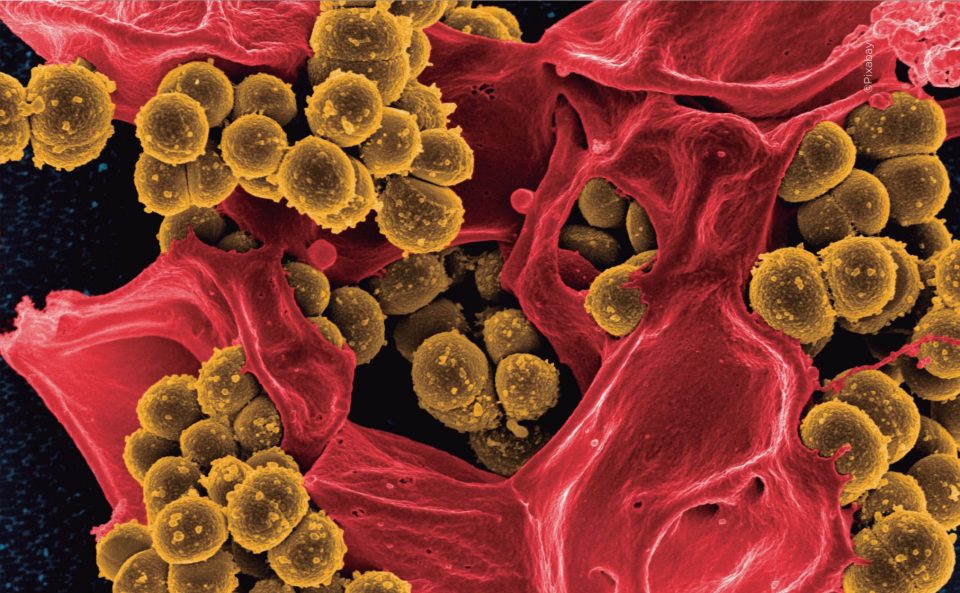Collaborative research on antimicrobial resistance
For the next three years, Universidad del Desarrollo (UDD) will host and lead a research group of excellence at the national level, the associative project Millennium Nucleus for Collaborative Research of Antimicrobial Resistance (MICROB- R). This Nucleus will receive a yearly amount of USD 300.000 in funding (approximately 200 CLP) from the Initiative Scientific Millennium of the Ministry of Economy, Development and Tourism.
The project is directed by José Manuel Munita, associate professor of the Institute of Sciences and Innovation in Medicine at UDD, and by Andrea Moreno, assistant professor of the Faculty of Ecology and Natural Resources at Universidad Andrés Bello, who acts as the alternate director. The Nucleus is developed in conjunction with a team of researchers from national institutions of higher education: Universidad de Concepción and Pontificia Universidad Católica de Valparaíso. Moreover, the initiative contemplates the participation of senior researchers from Pontificia Universidad Católica de Chile and prestigious foreign universities, such as Oxford, Cornell, Duke, Minnesota, Texas Health Science Center in Houston, and the National Center for Biotechnology of Spain.

In scientific terms, the mission of the MICROB-R nucleus is to comprehensively examine antimicrobial resistance using epidemiological, microbiological, molecular, and genomic techniques to raise awareness of the multi-resistant bacteria problem throughout the country. In particular, it is expected that in the short term this Nucleus will develop both basic and translational border research from a “One Health” approach. For it recognizes antimicrobial resistance as a multidimensional problem that includes the health of humans, animals, the environment, and all the independent relationships between them, with an emphasis on multidrug-resistant organisms that are clinically relevant.
In this research with an interdisciplinary approach, a group of young researchers with experience in antimicrobial resistance will collaborate. Likewise, the project contemplates training young scientists at the highest level, promoting the technical capabilities of the scientific community in related disciplines to antimicrobial resistance, and developing extension activities on the subject in both public and private sectors.
The project has prioritized the study of the following multi-resistant organisms given their relevance in terms of the threat they pose to hospital centers in Chile and the world, and that were recently classified as “critical” by the World Health Organization: Enterobacteriaceae, Pseudomonas aeruginosa, and Acinetobacter baumannii, all resistant to carbapenems. The following objectives are expected to be developed: To determine the molecular epidemiology in clinical results in hospitals throughout the country; and to study the role of the community and the environment in the dissemination of resistant bacteria using the cohort of Molina (MAUCO).
